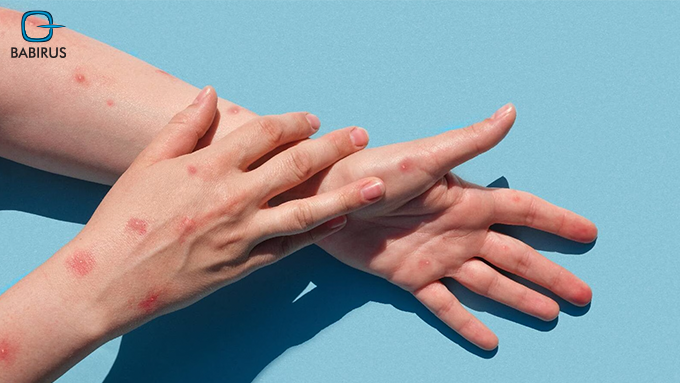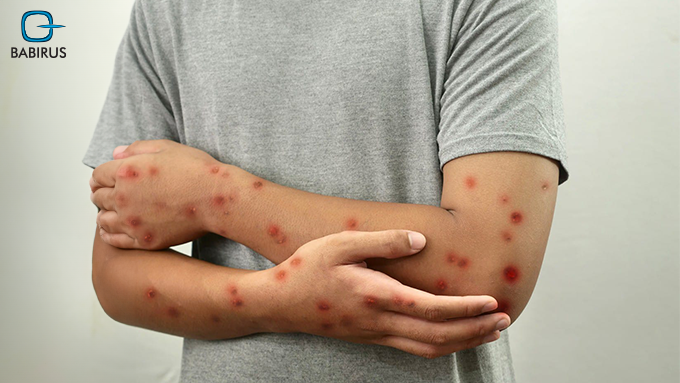Monkeypox Treatment, Diagnosis, and Prevention: What You Need to Know

Mpox, formerly known as monkeypox, has become a growing concern due to its outbreaks in different parts of the world. While most cases are mild and resolve on their own, some individuals may develop complications that require medical attention. This raises an important question: what are the available options for monkeypox treatment, and how is mpox diagnosed?
With advancements in laboratory testing, monkeypox diagnosis has become more efficient, allowing for quicker identification and management of cases. Additionally, preventive strategies, including vaccination and hygiene measures, play a significant role in limiting the spread of the virus.
This article provides an in-depth look at how monkeypox is diagnosed, the treatment options available, and key steps to prevent infection.
How is Monkeypox Diagnosed?
Since mpox symptoms can resemble other illnesses, particularly chickenpox or other viral rashes, laboratory testing is the most reliable way to confirm a diagnosis.
1. Polymerase Chain Reaction (PCR) Testing
PCR testing is the gold standard for monkeypox diagnosis. It detects the virus’s genetic material from patient samples, usually taken from:
- Skin lesions (preferred sample type)
- Oropharyngeal swabs (throat swabs)
- Blood or urine (less commonly used)
PCR tests offer high accuracy and fast results, allowing healthcare providers to confirm an infection quickly and recommend appropriate care. For laboratories requiring comprehensive monkeypox detection, the Bioperfectus Monkeypox PCR and Genotyping Kit offers an efficient and highly sensitive solution. This CE-marked test processes up to 96 samples in just 62 minutes, detecting as few as 5 copies per reaction with an internal control. It also differentiates between the Central African (Clade I) and West African (Clade II) strains, making it a valuable tool for outbreak surveillance and accurate diagnosis.
2. Rapid Infection Testing
Point-of-care diagnostic tests are being developed to offer faster monkeypox detection, particularly in areas with limited laboratory access. While PCR remains the primary method, rapid infection testing could improve early detection and outbreak management.
3. Serology & Antibody Testing
Serology tests look for antibodies against the monkeypox virus in the blood. However, they are not used for immediate diagnosis, as antibodies develop later in the infection. This type of testing is more useful for research and epidemiological studies rather than diagnosing an active infection.
Treatment for Monkeypox
Currently, there is no specific antiviral medication exclusively for monkeypox, but treatment focuses on managing symptoms and preventing complications.
1. Symptom Management
Most mpox cases are mild and resolve on their own within 2 to 4 weeks. Supportive care includes:
- Pain relievers & fever reducers (e.g., acetaminophen, ibuprofen)
- Antihistamines for itching relief
- Hydration & rest to support recovery
- Topical creams to soothe skin irritation from rashes
2. Antiviral Medications
For severe cases or individuals with weakened immune systems, antiviral medications may be prescribed. These include:
- Tecovirimat (TPOXX) – Originally developed for smallpox, this antiviral has shown effectiveness in reducing monkeypox symptoms and recovery time.
- Cidofovir & Brincidofovir – Antivirals used for other viral infections that may be considered in severe cases.
Monkeypox Vaccine & Who Needs It
Vaccination plays a significant role in preventing monkeypox infection and reducing symptom severity.
1. Available Monkeypox Vaccines
Two vaccines are currently approved for monkeypox prevention:
- JYNNEOS (Imvamune or Imvanex) – A non-replicating live virus vaccine that offers protection against both monkeypox and smallpox. Given in two doses, it is recommended for individuals at high risk.
- ACAM2000 – An older smallpox vaccine that provides cross-protection against monkeypox. However, it has more side effects and is not suitable for people with weakened immune systems.
2. Who Should Get the Vaccine?
The monkeypox vaccine is recommended for:
- Healthcare workers who may be exposed to infected patients.
- Individuals with close contact with confirmed cases.
- People in high-risk environments, such as laboratories handling orthopoxviruses.
- Immunocompromised individuals at greater risk of complications.
Vaccination before exposure provides the best protection, but post-exposure vaccination (PEP) within 4 days of contact can still reduce the likelihood of developing symptoms.
How to Prevent Monkeypox
Taking preventive measures is essential to reduce the spread of monkeypox and protect those most at risk.
1. Practice Good Hygiene
- Frequent handwashing with soap and water or alcohol-based sanitizers.
- Avoid touching face, eyes, and mouth after being in public spaces.
2. Avoid Close Contact with Infected Individuals
- Limit physical contact with people showing symptoms, especially skin lesions or rashes.
- Avoid sharing personal items such as towels, bedding, or utensils with infected individuals.
3. Properly Disinfect Surfaces
- Clean and disinfect high-touch surfaces, including doorknobs, electronics, and medical equipment.
- Use EPA-approved disinfectants effective against viruses.
4. Safe Animal Handling Practices
- Avoid direct contact with wild animals or exotic pets that may carry the virus.
- Cook meat properly to prevent zoonotic transmission.
FAQ: Common Questions About Monkeypox
1. Can Monkeypox Be Treated at Home?
Yes, mild cases of monkeypox can be managed at home with symptom relief such as fever reducers, hydration, and rest. However, medical attention is required if symptoms worsen or complications arise.
2. Is Monkeypox Deadly?
Most cases are mild and not life-threatening, especially with the West African strain (Clade II). However, complications can occur in young children, pregnant individuals, and those with weakened immune systems.
3. Can You Get Monkeypox Twice?
While immunity develops after infection, reinfections are rare but possible. Long-term immunity is still being studied, and vaccination is recommended for added protection.
4. How Long Does Monkeypox Last?
The illness typically lasts 2 to 4 weeks, from symptom onset to rash healing.
5. Can Monkeypox Spread Through the Air?
Monkeypox is not primarily airborne but can spread through large respiratory droplets in close contact settings. It does not spread as easily as COVID-19.
6. How Soon Should I Get the Monkeypox Vaccine After Exposure?
Vaccination within 4 days of exposure offers the best chance of preventing symptoms. If given between 5 to 14 days after exposure, it may not prevent infection but can help reduce symptom severity.
7. How is Monkeypox Different from Other Skin Conditions Like Chickenpox?
While both illnesses cause rashes, mpox lesions tend to be larger, deeper, and evolve at the same rate, whereas chickenpox rashes appear in different stages simultaneously. Mpox also causes swollen lymph nodes, a symptom that is uncommon in chickenpox.
Finally,
As global outbreaks of mpox continue, early diagnosis, treatment, and prevention efforts are the best strategies for managing the virus. While most cases are mild and resolve on their own, medical support and antiviral options are available for those with severe symptoms or high-risk conditions.
By staying informed, practicing good hygiene, and considering vaccination when appropriate, individuals can reduce their risk of infection and help limit the spread of monkeypox within communities. For trusted solutions in monkeypox diagnostics and management, contact Babirus to explore reliable testing and prevention options.

